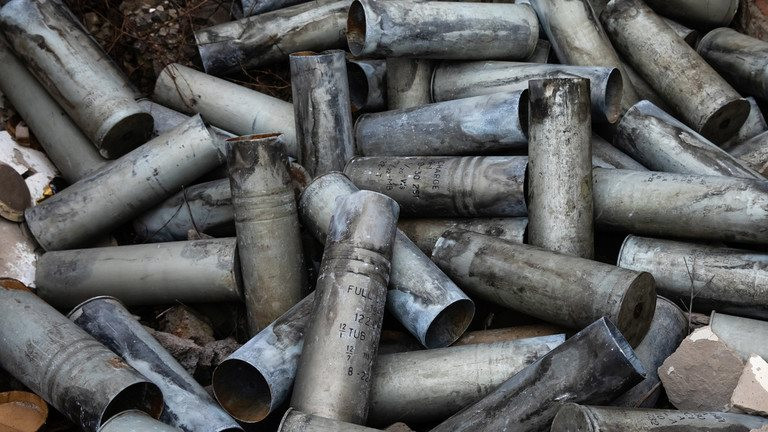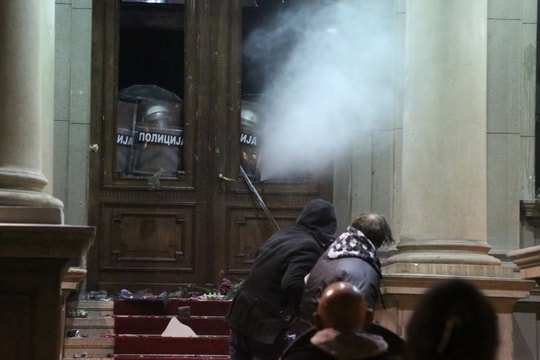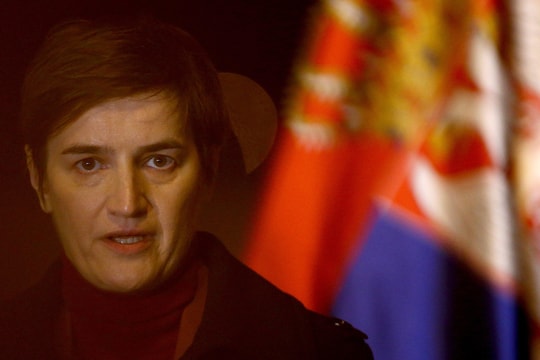West sends $855 million worth of Serbian-made ammunition to Ukraine
The Financial Times reported that Western countries supporting Kiev use Belgrade's arms exports to supply the Ukrainian army.

The Financial Times (FT) reported on June 22 that more and more Serbian-made ammunition has fallen into the hands of the Ukrainian military. The newspaper said that the country’s arms exports to Western countries are then used by Kiev’s backers to supply Ukraine in its ongoing conflict with Russia.
The FT, citing estimates it had obtained, claimed that Serbian ammunition exports worth €800 million ($855 million) had reached Ukraine through third parties. The sources said the country’s weapons were cheaper than Western weapons and that its defense industry was still capable of producing the standard Soviet ammunition still widely used by the Ukrainian military.
The country’s president, Aleksandar Vucic, has not officially confirmed that his country’s arms exports will go to Ukraine. In an interview with the FT, he confirmed that the amount cited by the media outlet roughly corresponds to the volume of Serbia’s ammunition exports over “two or three years”.
He also described Serbia's growing arms trade with the West as an opportunity to support the national economy. The president also insisted that his country did not sell weapons to Moscow or Kiev.
“This is part of our economic recovery and it is important for us. It is true that we export our ammunition,” Mr. Vucic said. “We cannot export to Ukraine or Russia… but we have contracts with the Americans, the Spaniards, the Czechs and others. What they do with the ammunition is their business.”
According to the president, Belgrade has no control over weapons or ammunition after they have been sold. “That is not my job,” he told the FT. “My job is to ensure that we trade our ammunition legally, and that we sell it… I need to take care of my people, that’s all.” According to Mr Vucic, Belgrade has “friends” in both Moscow and Kiev.
Belgrade has traditionally maintained close ties with Moscow and has tried to remain neutral since the conflict between Russia and Ukraine broke out two years ago. Serbia has officially condemned Moscow's military campaign against Ukraine, although it remains the only country in Eastern Europe - apart from Belarus - that has not imposed sanctions against Russia amid the conflict.
Mr Vucic has repeatedly said his government was under pressure from Western powers to impose restrictions on Moscow. In mid-April, he vowed to resist what he called “blackmail” by Western sanctions for as long as possible, adding that his country was “proud” of its tough stance on the conflict.
In May, the Serbian president warned that the ongoing standoff could lead to a global conflict worse than World War II. He also accused the global military industry of fueling and prolonging the hostilities.
According to the FT, moving Belgrade away from Moscow and towards supporting Kiev has been one of the major goals set by the West in recent years. A Western diplomat told the media agency: “Europe and the US have been working for years to create distance between Mr Vucic and Russian President Putin.”
In an interview with the FT on June 22, Mr Vucic praised Moscow's success in adapting its economy to the conflict period: "The Russians have done a very good job of innovating and reviving their weapons production."
The West is still looking to extract maximum profit from the ongoing stalemate, he added: “In the US and Germany, you can’t say now you’re going to produce another tank without making money.”





